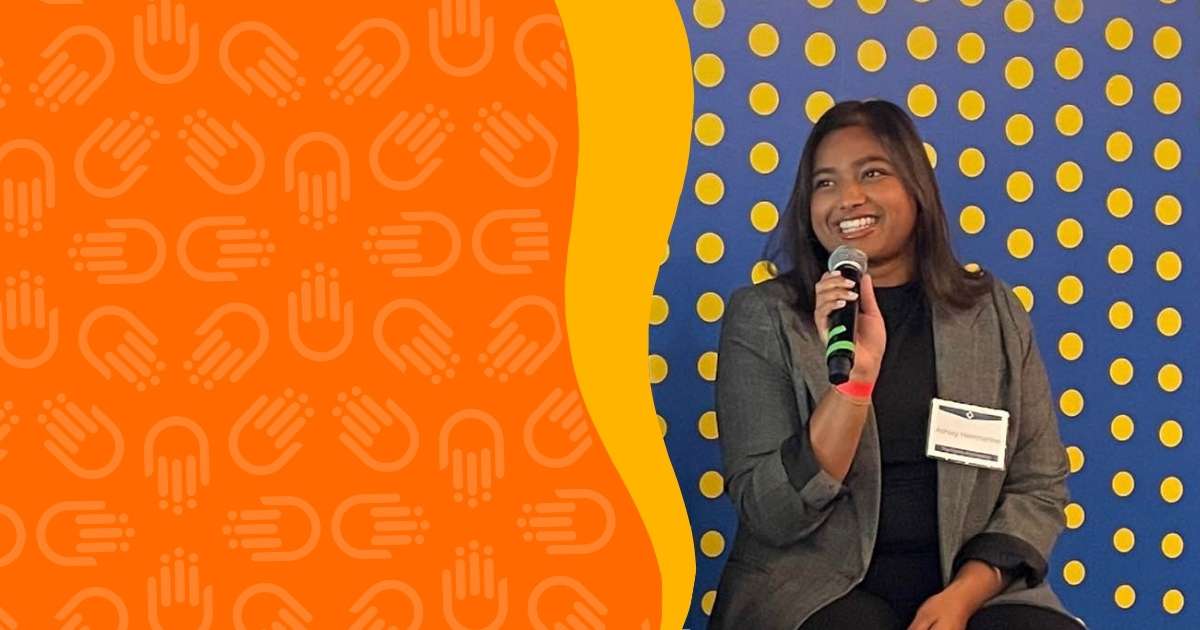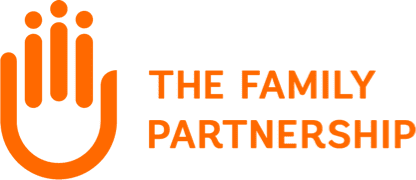Ashley Hemnarine: Advancing Generational Healing and Community Solidarity at The Family Partnership

As the new Vice President of Advancement at The Family Partnership, Ashley Hemnarine brings a wealth of experience and a deep commitment to our mission: building strong families, vital communities, and better futures for children. In this article, we’re excited to share Ashley’s story, her perspective on giving, and her vision for TFP’s generational healing work with individuals and families in Minneapolis.
From Letter Writing to Leadership: Ashley’s Journey to Advancement
Ashley’s journey to The Family Partnership (TFP) is rooted in her lifelong belief in the power of solidarity. Growing up in a diverse, under-resourced neighborhood in Newark, New Jersey, she became aware early on that not everyone had equal opportunities. She noticed disparities in healthcare, where families without insurance received lower-quality care at public hospitals. She also saw her mother facing discrimination; customer service representatives often berated her because of her accent.
Even as a child, Ashley showed concern for her community. In a letter to Santa, she requested, “I want everyone to be happy, world peace, and a Barbie.” She was fortunate to attend a well-resourced school and later enroll in college—experiences that helped her understand how different her life might have been without this access.
After earning her bachelor’s degree in psychology, Ashley went on to earn her master’s in health administration. While getting her master’s degree, she saw the ways in which healthcare systems perpetuate inequities and became disillusioned with the field. However, an internship at a hospital foundation helped her see the power of fundraising to meet the needs of organizations doing important work. Seeing how fundraising supports the missions of organizations that make real and concrete differences in people’s lives inspired Ashley to move into development.
After that experience and serving as a Development Associate for a nonprofit focused on strengthening health systems in sub-Saharan Africa, Ashley came to work at The Family Partnership in 2022, first as the Development Manager, then Development Director, and now as Vice President of Advancement.
Advancing Solidarity with Minneapolis families and communities
When Ashley joined TFP, the organization’s 2Gen approach and the emphasis on generational healing resonated with her. “A lot of people I grew up with had very different lives because of where they lived and the generational trauma they had to deal with,” Ashley reflects. This perspective drives her work at The Family Partnership (TFP), where she champions equitable access to resources for all families.
The Family Partnership works in Minneapolis communities that face racial and economic disparities, in a state with some of the worst racial opportunity gaps in early childhood in the nation. While just 50% of children living in low-income households are kindergarten-ready, 100% of the children in our preschools graduate with the skills needed to succeed in school and life. When it comes to potential and promise, there is no difference between children in our preschools and their peers. The difference is access to high-quality early childhood education and care at The Family Partnership, as well as two-generation programs that support the whole family.
For 146 years, The Family Partnership has adapted to meet the changing needs of Minneapolis families and communities. A critical part of our success involves meeting people where they are at. This core value applies to participants on their healing journey, staff who bring their authentic selves to work, and donors who find their passion in making a social impact.
How Donors Support Generational Healing through The Family Partnership
Ashley is motivated every day to raise awareness and support for The Family Partnership’s generational healing work. She loves working with TFP because the organization practices what it preaches—it’s the how and the why of TFP’s work that she feels confident sharing with donors so that work can continue. “The Family Partnership truly cares about the people we serve and how we serve them. We engage people to ensure we are providing the programs they want and need.” Donors make it possible for staff at TFP to innovate and meet the goals and needs of Minneapolis families.
Ashley pointed to the example of Sofia Silva Zapatta, an outpatient mental health therapist with TFP, who noticed how stressed-out mothers were when dropping their children off for play-based therapy. Based on The Family Partnership’s two-generation approach, Sofia understood the importance of supporting parents and the role that plays in children’s mental health outcomes. In response, Sofia created a somatic yoga program that helps parents and caregivers build skills for self-regulation and stress reduction.
The program also opened doors for Sofia to build relationships with caregivers, who then opened up about their struggles. By learning more about the families’ experiences and challenges, Sofia was better able to work with children and connect families to resources. One mother in the program told Sofia, “Even though my kids have access to health insurance, I don’t have health insurance or access to mental health treatment. I never thought that getting help for me was even possible. Somatic yoga is a safe space where we can process our emotions and learn how to deal with our stress. I’m no longer alone. I’m heard…I’m seen…and me and my kids are healing!”
Individual donations to The Family Partnership are unrestricted, allowing us to be flexible and responsive to the community’s most pressing needs across all our programs. If a person can’t pay their rent one month or needs groceries, these funds allow TFP to help—after all, no one can begin a journey of healing without having their basic needs met first.
Ashley shares a few examples of other ways that donors have helped Minneapolis families:
- Mothers who experienced sexual exploitation found safe emergency housing through our anti-sex trafficking services
- Children in our preschools received essential screenings including vision, dental, and child development—removing a barrier for parents and caregivers working multiple jobs
- 152 families and 515 individuals received gifts through the holiday sponsorship
Expanding the Idea of Giving at TFP—and Beyond
In her role as Vice President of Advancement, Ashley is working to expand the idea of giving at The Family Partnership and beyond.
She says, “My superpower is being able to translate the work that nonprofits are doing in a way that helps donors execute on their passion on social issues and causes.” When she meets with a potential donor, she enjoys finding out what excites them and what they are passionate about. She believes in helping connect donors to the organizations that share their passion, even if it isn’t The Family Partnership. She said, “One nonprofit can’t do everything, so, we need to help each other out.”
My superpower is being able to translate the work that nonprofits are doing in a way that helps donors execute on their passion on social issues and causes.
Ashley Hemnarine, Vice President of Advancement
One thing TFP’s donors have in common is an understanding of and commitment to a 2Gen approach to healing.
Ashley also wants to connect with younger donors as well as black and brown donors. A report from Indiana University Lilly Family School of Philanthropy shows that there is an underutilized market of black and brown donors who are looking for organizations that serve their communities and have leadership teams that reflect them.
A report from Donors of Color Network finds, “Donors of color are generous and insightful, and because of their lived experiences, they have the potential to be a driving force behind massive change in the field of philanthropy and for equity and justice movements. Donors of color bring critical insights, resources, and talent to bear at a socio-political moment in which new ideas, investment, and innovation are more important than ever.”
Ashley said, “As a young, brown Vice President, I know that I can bring a different perspective across race, age, and geography, to connect with donors.”
To do this, Ashley believes in helping potential donors understand the needs of the community and the impact smaller gifts can have. She also emphasizes that charitable giving is not just about what someone can give financially, but also what they can give in terms of their time and expertise.
- People can donate as little as $10 per month
- Host a gathering to assemble hygiene kits for one of TFP’s programs
Donors and volunteers are especially important post-COVID, since individual giving in the U.S. has declined for the first time since 2012. In 2023, 1 out of every 5 individual donors to The Family Partnership gave less than $100. Giving time is another way to make a big difference. Last year, more than 300 volunteers generously served children and families working with The Family Partnership.
“We are living in a time when anyone can give, not just the wealthy,” Ashley said, “Everyone can give in a way that is personal and meaningful.”
Looking for a way that you can make an impact? Visit our Ways to Give page to learn more.
